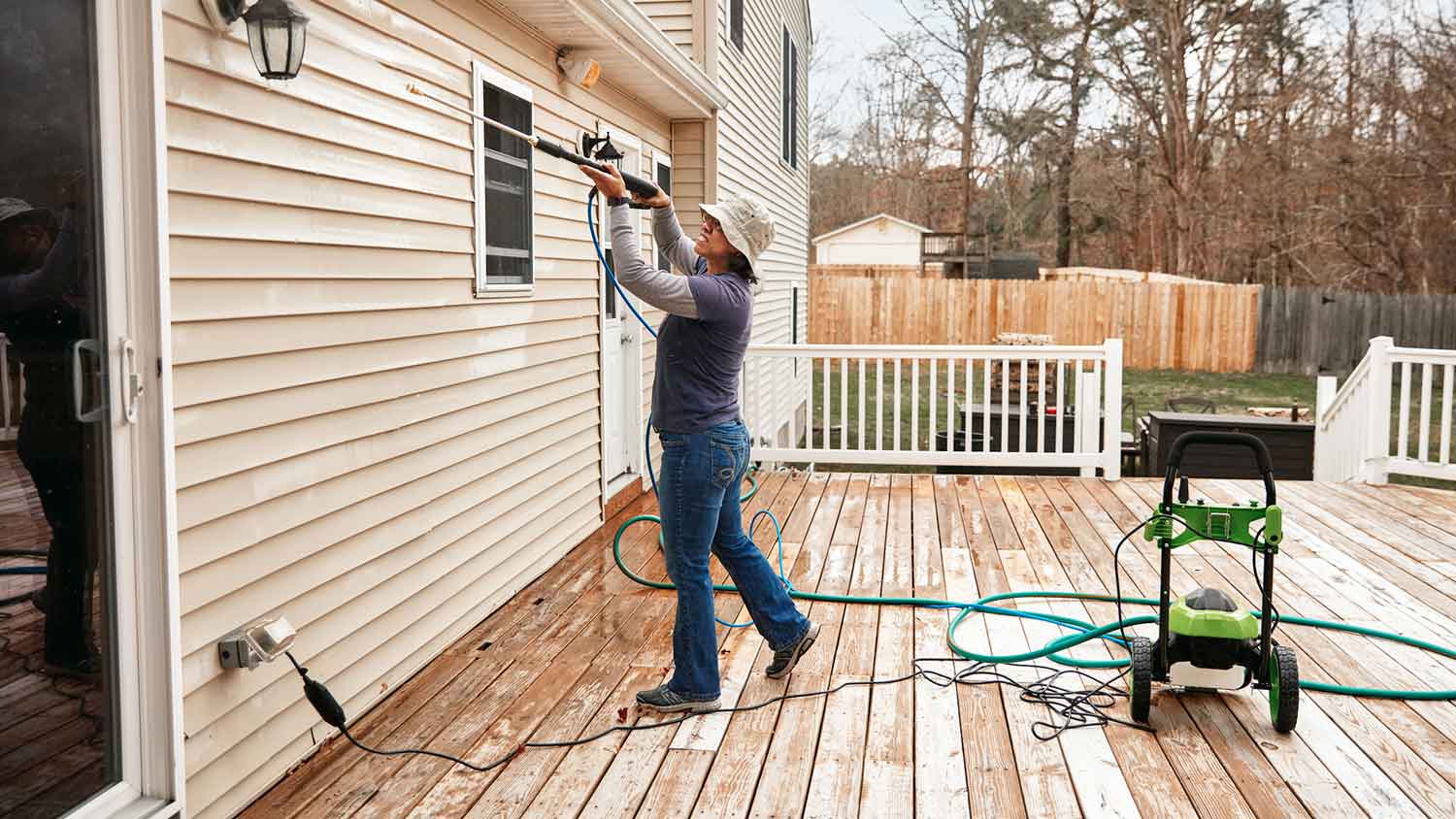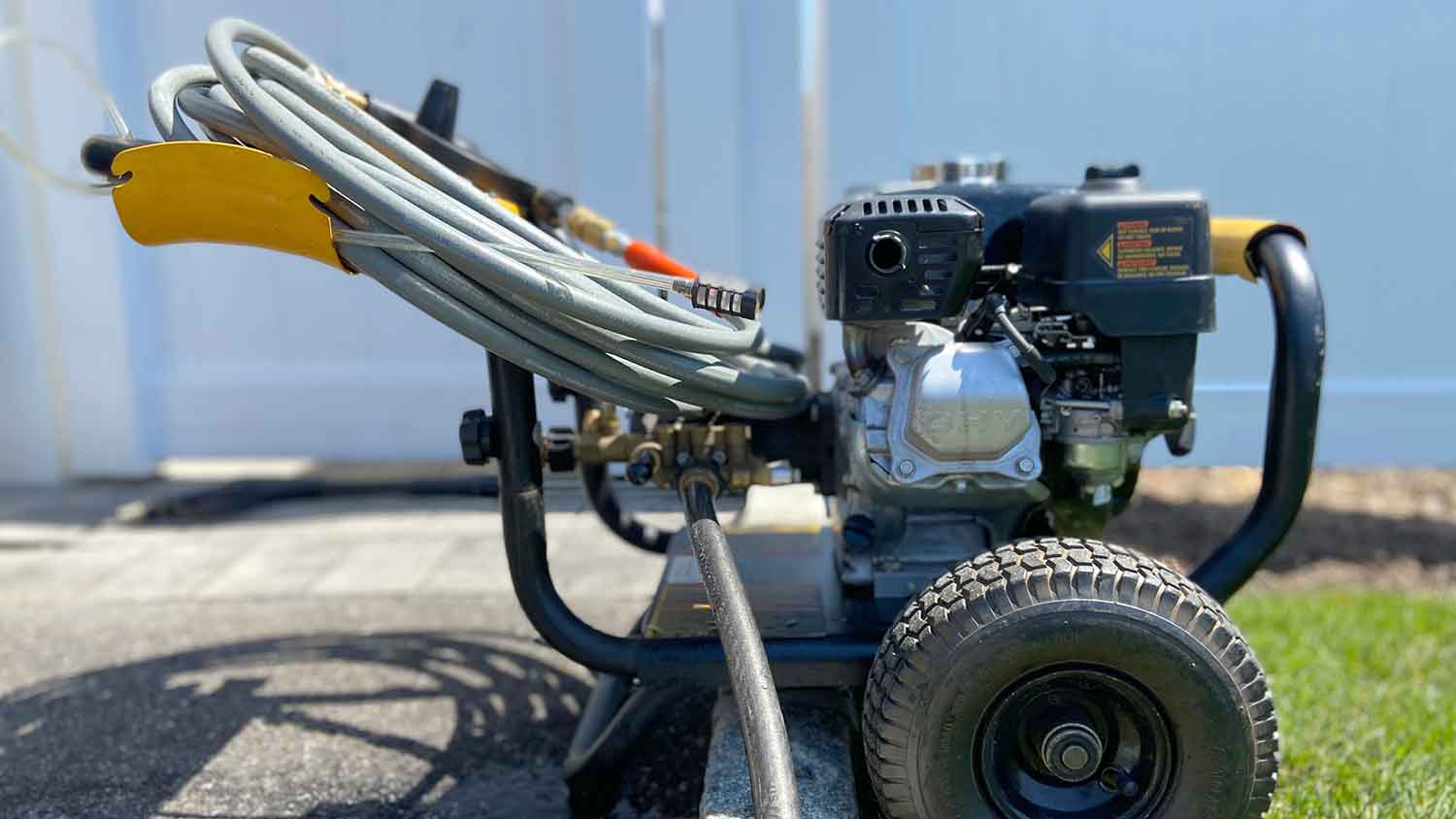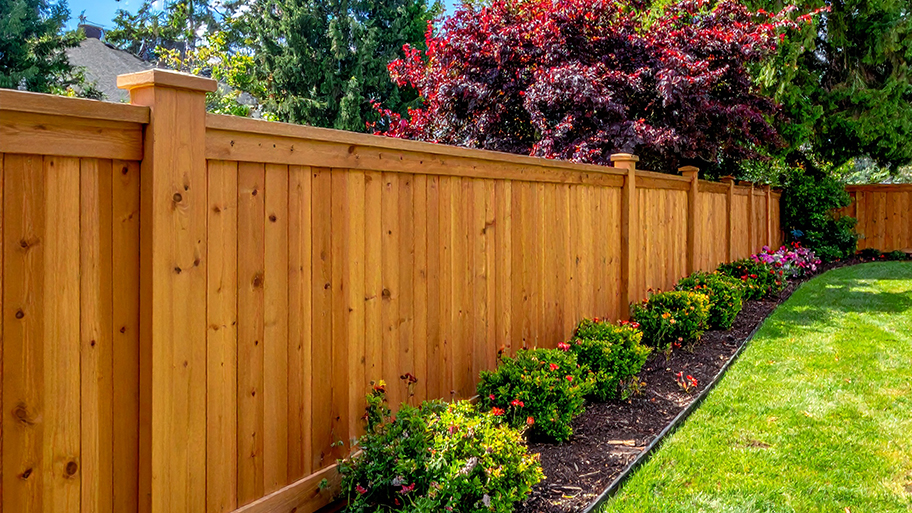
Pressure washers can help you keep your home looking great. Use this guide to learn how much it costs to rent a pressure washer based on factors like type and time.
Make it a low-pressure decision


Electric power washers provide enough power for most residential projects.
Electric models are environmentally friendly and easy to use.
Gas power washers offer higher psi for heavy-duty tasks.
Electric models cost less than gas power washers.
Gas models last longer than electric ones but require more maintenance.
Investing in a power washer allows you to easily clean many surfaces around your property, including patios, decks, windows, siding, and vehicles. Choosing a gas versus electric power washer comes down to the projects you want to accomplish, your budget, and the amount of maintenance you want to handle. Learn the differences between electric versus gas power washers and which one to buy for your cleaning needs.
Electric power washers are less expensive, easy to use and maintain, and offer solid cleaning power, enough for most residential cleaning jobs. Gas power washers provide superior cleaning power for heavy-duty jobs, but they cost more and are harder to maintain and use. Electric power washers are more environmentally friendly, but they don’t last as long as gas models.

An electric power washer runs on electricity and either has a cord that plugs into an outlet or uses a battery. Electric power washers provide 300 to 3,400 psi (pounds per square inch, a measure of pressure) and 1.2 to 2 GPM (gallons per minute, or flow rate), depending on the model. They’re quiet while operating, environmentally friendly, and easy to use and maintain. Electric power washers cost $100 to $700, and higher-powered models come in at the higher end.
| Pros | Cons |
|---|---|
| Easy to use and maintain | Has a cord and needs a nearby outlet (unless battery-operated) |
| Less expensive than gas models | Has a battery that needs to be charged (unless it has a power cord) |
| Environmentally friendly | Offers a lower psi and GPM than gas models |
| Quiet operation | Doesn’t last as long as gas models |
Best for:
Beginner to intermediate DIYers
Outdoor spaces with a nearby outlet
Environmentally conscious homeowners
Electric power washers are easy to use and simple to maintain. They can handle most residential pressure washing projects, including deep cleaning patios, driveways, porches, siding, vehicles, and more. They’re quiet, making power washing projects possible any time of day, and they can be used in some enclosed spaces, like a garage or three-season porch.
Electric models are environmentally friendly because they don’t burn gas or emit fumes. They also require very little maintenance: washing before storing for the season and lubricating the pump.
You’ll need an outdoor outlet close to your project area to run your washer outside. If you choose a battery-operated power washer, you’ll need to remember to charge the battery beforehand so that it lasts for the entire project. The psi and GPM are often lower than gas models, making them less than ideal for heavy-duty jobs like getting oil stains off of the driveway. While electric models are less expensive than gas ones, their life span is shorter.

A gas power washer runs on gasoline with a heavy-duty engine for tough cleaning jobs like stripping paint or removing an oil stain from a driveway. Gas power washers range from 2,700 to 5,000 PSI and 2.3 to 5.5 GPM. They are durable but require some maintenance and can be noisy.
While a little trickier to operate, gas power washers move with ease and don’t have any cords. Gas power washers cost $300 to $1,000 to purchase for residential models.
| Pros | Cons |
|---|---|
| Offers higher PSI and GPM to handle tough jobs | Louder than electric models |
| Durable and heavy-duty | Not as environmentally friendly |
| Mobile and easy to move around | Require some maintenance |
| Long life span | More expensive |
Best for:
Homeowners who tackle heavy-duty jobs
Intermediate to experienced DIYers
Professional contractors
Gas power washers can tackle tough jobs like cleaning stains off of a patio or spraying down boat hulls. They’re fully mobile and don’t have a power cord or a battery that you have to charge. Their durability helps them last longer than their electric counterparts by two to four years. Gas power washers are excellent for those who take on heavy-duty cleaning consistently.
A gas power washer isn’t as environmentally friendly because it burns gasoline and emits fumes. A gas model can also be loud when operating, reaching up to 100 decibels (equal to what you’d hear at a construction site).
Gas pressure washers can also be harder to start and require more maintenance than electric models, including oil changes, gas refills, and adding gas stabilizers for storage. Most homeowners don’t need a gas power washer for their projects, making it hard to justify the higher price tag.
When choosing a pressure washer, look at the type of projects each can handle, the cost, and the maintenance involved.
Gas power washers provide 2,700 to 5,000 psi and 2.3 to 5.5 GPM, making them a more powerful cleaner than electric models. Electric power washers provide 300 to 3,400 PSI and 1.2 to 2 GPM. Gas power washers can handle the job of getting tough stains out of sidewalks and driveways.
Electric power washers cost $100 to $700, but gas pressure washers range from $300 to $1,000 or more. However, because gas pressure washers last longer, you won’t need to pay for a replacement as often. If you don’t feel like you’ll use a power washer frequently enough to justify the cost, consider renting a power washer or hiring a local power washing company. The cost to rent a pressure washer ranges from $50 to $250 per day.
Electric power washers require little maintenance: cleaning the exterior, hose, and spray nozzles before storing it in a covered place. Gas pressure washers need a bit more maintenance beyond exterior cleaning, including oil changes, regular lubrication, and new spark plugs.
With their metal parts and hearty fuel engines, gas pressure washers are more durable than electric units, which are often made of lightweight plastic parts. Gas power washers last five to seven years when well-maintained, but electric power washers last three to five years. Keeping your power washer clean and winterizing it before cold weather hits extends your power washer’s life span, no matter the type.
Because electric power washers are quieter and don’t use gas or emit fumes, they are more environmentally friendly than gas units. You’ll still need to use electricity or charge the battery, though.
Electric power washers are easy to start, operate, and maintain. They’re great for most residential projects and DIYers. If you’re an avid handyperson or have tougher cleaning jobs, you’ll be able to get the hang of a gas power washer within a few uses.
From average costs to expert advice, get all the answers you need to get your job done.

Pressure washers can help you keep your home looking great. Use this guide to learn how much it costs to rent a pressure washer based on factors like type and time.

The cost to pressure wash a patio depends on the size of the surface and the type of patio you have, as well as whether you DIY or hire a pressure washing pro.

Pressure washing your fence can restore its appearance and keep your home looking great. Learn how much it costs based on factors like square footage and material.

Now that you own a new pressure washer, learn how to use it like a professional so you can clean your driveway, siding, deck, and quickly and thoroughly.

Find the root cause for why your pressure washer is not building pressure and how to fix it. You can resolve simple issues in minutes.

A leak can damage a pressure washer and cost more money in fuel. What would cause a pressure washer to leak oil? Find out the six top causes with this guide.